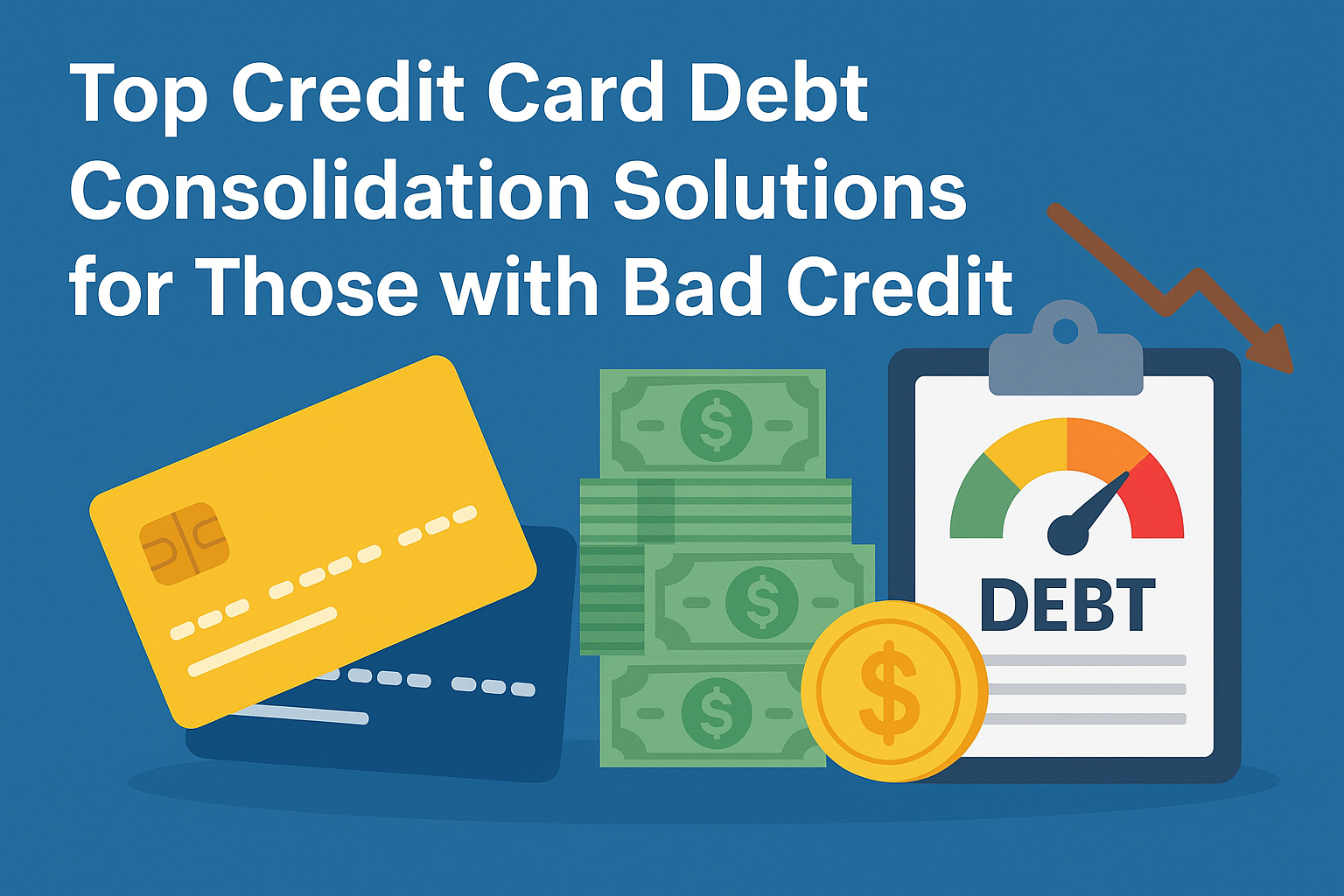Struggling with credit card debt can feel overwhelming, especially if your credit score isn’t in the best shape. High interest rates and multiple monthly payments can make it hard to get ahead. Thankfully, debt consolidation programs offer a way to simplify your finances, lower interest rates, and create a manageable path to becoming debt-free. For those with bad credit, finding the right consolidation option is key to regaining financial control. In this guide, we’ll explore the best credit card debt consolidation programs tailored for individuals with less-than-perfect credit, helping you make informed decisions to achieve financial freedom.
What Is Credit Card Debt Consolidation?
Debt consolidation involves combining multiple high-interest debts, like credit card balances, into a single, more affordable monthly payment. This strategy often comes with a lower interest rate, reducing the total cost of your debt and making repayment easier. For those with bad credit typically a credit score below 670 options may be limited, but they do exist.
Why Debt Consolidation Is Crucial for Bad Credit Borrowers
- Lower your interest rates, saving you money over time.
- Simplify multiple payments into one, reducing the risk of missed due dates.
- Help improve your credit score with consistent, on-time payments.
- Provide a structured plan to become debt-free in a reasonable timeframe.
Top Debt Consolidation Options for Bad Credit
| Option | Best For | Credit Score Requirement | Interest Rates / Fees | Key Features | Considerations |
|---|---|---|---|---|---|
| Debt Management Plan (DMP) | Bad credit with steady income | No minimum score required | Low setup/monthly fee | One payment, reduced interest, nonprofit support | Must stop using credit cards, long-term commitment |
| Personal Loan | Fair-to-bad credit with stable income | 560–620+ | 7.99%–35.99% APR + 1.85–9.99% origination fees | Lump-sum funds, fixed payments, fast approval | Higher APR if low score, credit check required |
| Balance Transfer Card | Fair credit & ability to repay quickly | 600+ | 0% intro APR (12–21 months), 3%–5% transfer fee | Interest-free window, direct transfer | Requires decent credit, high APR after promo |
| Debt Settlement | Severe financial hardship | No credit score required | 14%–29% of enrolled debt | Reduces total owed, accessible with poor credit | Credit score damage, possible tax on forgiven debt |
| Secured Loan / Co-signer | Homeowners or those with trusted co-applicant | Varies (low credit accepted with collateral or co-signer) | Lower APR due to security | Higher approval odds, lower rates | Risk of asset loss, co-signer is liable |
Tips for Choosing the Right Consolidation Program
- Check Your Credit Score: Use AnnualCreditReport.com to understand where you stand.
- Compare Interest Rates: Ensure they are lower than your current APRs.
- Watch for Fees: Choose options with transparent, minimal fees.
- Assess Your Budget: Pick a program with payments you can manage.
- Avoid New Debt: Don’t continue using credit cards after consolidation.
- Seek Nonprofit Counseling: Agencies like InCharge Debt Solutions offer free help.
Pros and Cons of Debt Consolidation for Bad Credit
Pros:
- Simplifies multiple payments into one.
- Potentially lowers interest rates.
- Consistent payments can improve your credit score.
- Provides a clear repayment timeline.
Cons:
- High fees or APRs may reduce benefits.
- Debt settlement can hurt your credit.
- Requires financial discipline to avoid new debt.
- Not all options guarantee approval.
Alternatives to Debt Consolidation
- Debt Snowball or Avalanche: Pay off small or high-interest debts first.
- Negotiate with Creditors: Request lower rates or payment terms.
- Credit Counseling: Get a budget and plan from a nonprofit agency.
- Bankruptcy: Consider only as a last resort after counseling.
Final Thoughts
Credit card debt consolidation can be a lifeline for those with bad credit. Programs like DMPs and personal loans from companies like Achieve or Avant are great starting points. Always compare terms carefully and choose a plan that fits your financial reality. With the right strategy, you can regain control and work toward a debt-free future.
Need personalized help? Contact a nonprofit credit counselor or explore prequalification tools to get started without impacting your credit.

